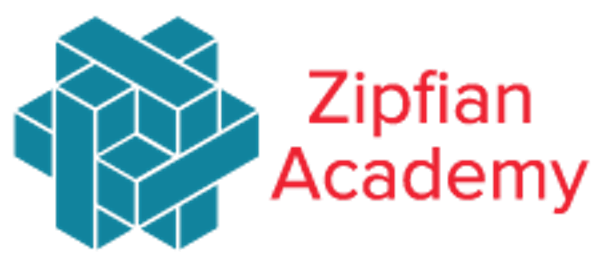
Intro to Data Science Online Course
Date and time
Location
Online
Refund Policy
Description
Data science is a fast-growing field in high demand, and the first step is knowing what you don't know. We run an immersive 12-week program teaching data science, and built this course as an introduction for people who are getting started in data science.
The classes are designed to be work-at-your-own-pace. Feel free to begin on any day. We won't revoke access to the material.
About the classes:
Each 1.5-hour recorded lecture is accompanied by hands-on exercises which allow you to practice the concepts. You can follow along and complete data analysis in Python, data munging in Unix, and data visualization using D3.
Once you've completed the class series, we're happy to connect you with more resources to help further your data science skills.
Below is the class syllabus and FAQ.
Thanks,
Zipfian Academy
Course Syllabus
1. Introduction to Data Science
Data science has been called the sexiest profession of the 21st century, but there are a lot of misconceptions about what exactly it is and why it's so important. Learn - and be able to explain why - in this introduction to the subject. In this class:
- Learn the short (but intriguing) history of Data Science.
- Understand what differentiates Data Science from traditional fields (Statistics, Computer Science, Machine Learning, etc.)
- Examine a case study highlighting each of the many steps (acquisition, preparation, exploration, analysis, visualization/communication) of the data analysis pipeline.
- Get experience with a real data set and see first hand how to transform it into actionable insights.
- Learn the next steps to becoming a Data Scientist and what resources are available to help.
- Learn basic logic notation, statistical techniques and concepts, such as Bayes’ Theorem.
- Understand basic probability theory and how it applies to statistics.
- Learn how to calculate statistical significance and confidence intervals.
- Examine real-world use cases and walkthrough a statistical exercise step-by-step.
- Explore how statistics and probability theory are used by everyday data scientists.
- Learn the difference between Recommenders, Classifiers, and Clustering.
- Understand how to pick the correct algorithm for your analysis.
- Examine a case study showing how to decompose a problem to train an algorithm.
- Learn Validation methods to test whether your algorithm is effective.
- Compare Supervised vs. Unsupervised learning and their tradeoffs.
- Learn where to find novel data sets for analysis.
- Get exposure to a typical ETL process and the best practices for each step.
- Examine a case study highlighting the process of building a data analysis pipeline.
- Understand the different ways to store your data (MySQL, MongoDB, Hadoop, etc.) and the tradeoffs of each.
- Learn the best tools available to transform and manipulate data into a suitable format for analysis.
- Learn about the history of Big Data and why and how Hadoop was built.
- Understand the different types of data (structured vs. unstructured) and what makes Big Data so “big”.
- Become fluent in the language of Hadoop, including MapReduce, HDFS and ecosystem components such as Hive, Pig, Hbase, Flume, and Mahout.
- Examine real-world use cases and see how Hadoop integrates into existing data workflows.
- Learn key design requirements of a Big Data solution and how to avoid common pitfalls.
- Learn the core concepts of how to visualize data in a meaningful way
- Understand basic visualization techniques and where to use them
- Examine how different visualization methods can drastically change meaning
- Explore the latest visualization technologies like D3.js and Rickshaw
FAQ
There are start and end dates listed above, but the description says you can start and end the class at any time. What's going on?
The classes are available to start and end at any time, whenever it's conveninet for you. The start and end dates listed on the page above are for administrative purposes.
How do the online classes compare with your 12-week immersive program?
This series is designed to be a comprehensive introduction to data science topics for those students who are interested in the field. The curriculum of our 12-week immersive program takes a deep dive into data science skills including programming in Python, Hadoop, and implementing Machine Learning algorithms through an intensive, project-based course. For that, you'd have to come to San Francisco!
Is there an certificate for completing the class series?
These classes are designed to accelerate and improve your self-directed learning. We don't issue a certificate, but you should feel free to discuss the classes and the knowledge you learned from them during instances in which having a certificate would be helpful.
I've purchased access to the series, but I can't access the lectures right away. What's going on?
It can take up to 1-2 business days for your purchase to be approved by our system. If you're in a hurry, contact us at the address below and we'll make sure you get access when you need it.
Zipfian Academy is a school teaching data science through an immersive 12-week course. The program helps students develop the mindset and technical skills they need to launch a data science career. Students receive access to a world-class network of data science experts, personalized instruction featuring hands-on projects, a collaborative learning space in San Francisco, and exclusive recruiting events with top-tier technology companies.